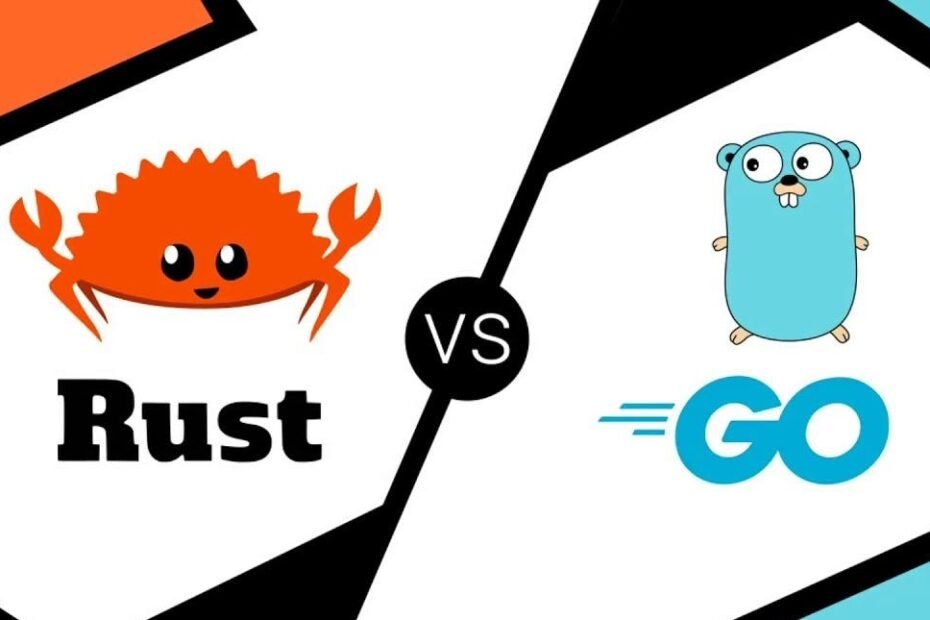Introduction
In the ever-evolving landscape of programming languages, two modern languages have been gaining significant attention in recent years: Rust and Go. These languages have been designed to address the limitations of traditional languages, offering improved performance, safety, and concurrency. we will delve into the features and benefits of Rust and Go, exploring why they are becoming the go-to languages for modern developers.
Rust: The Safe and Fast Alternative
Rust, developed by Mozilla, has been gaining popularity due to its focus on safety, speed, and parallelism. One of the primary reasons developers are flocking to Rust is its commitment to memory safety without sacrificing performance. Rust accomplishes this through its unique ownership system, which ensures that memory management errors like dangling pointers or data races are caught at compile time rather than at runtime.
Unparalleled Safety
Rust’s approach to safety is unparalleled in the world of programming languages. Its ownership system ensures that memory management errors are caught at compile time, reducing the burden of manual memory management and making Rust programs inherently safer. This not only makes Rust a more reliable language but also reduces the likelihood of bugs and errors.
Fearless Concurrency
In an era where multicore processors are the norm, the ability to execute tasks in parallel is more valuable than ever. Rust’s approach to concurrency is both innovative and fearless, allowing developers to write code that takes full advantage of modern hardware without the usual headaches associated with data races and other concurrency-related bugs.
Go: The Language of Simplicity and Speed
Go, developed by Google, has been designed to address the limitations of traditional languages, offering improved performance, concurrency, and simplicity. Go’s syntax is clean and minimalistic, making it easy to learn and use. Its concurrency model is based on goroutines and channels, allowing developers to write concurrent code that is both efficient and easy to maintain.
Simplicity and Speed
Go’s simplicity and speed make it an attractive choice for developers. Its syntax is clean and minimalistic, making it easy to learn and use. Go’s concurrency model is based on goroutines and channels, allowing developers to write concurrent code that is both efficient and easy to maintain.
Concurrency Made Easy
Go’s concurrency model is designed to make concurrency easy and efficient. Goroutines are lightweight and can be created and managed easily, allowing developers to write concurrent code that is both fast and reliable. Channels provide a safe and efficient way to communicate between goroutines, making it easy to write concurrent code that is both efficient and easy to maintain.
The Future of Programming Languages
Rust and Go are revolutionizing the world of programming languages, offering improved performance, safety, and concurrency. As the demand for modern and efficient software continues to grow, these languages are becoming the go-to choices for developers. With their unique features and benefits, Rust and Go are poised to shape the future of programming languages.
Conclusion
In conclusion, Rust and Go are modern programming languages that are changing the game. With their focus on safety, speed, and concurrency, they are becoming the go-to languages for modern developers. Whether you’re looking for a safe and fast alternative to traditional languages or a language that makes concurrency easy and efficient, Rust and Go are worth exploring.
FAQ’s
Q: What are Rust and Go?
A: Rust and Go (also known as Golang) are modern programming languages designed to provide memory safety, performance, and ease of use.
Q: What is the main difference between Rust and Go?
A: Rust is focused on memory safety and performance, while Go prioritizes simplicity and ease of use.
Q: Are Rust and Go suitable for beginners?
A: Rust has a steeper learning curve due to its unique ownership system, while Go is known for its simplicity and ease of learning.
Q: Which language is faster, Rust or Go?
A: Rust is generally faster than Go due to its compile-time evaluation and lack of garbage collection.
Q: Can I use Rust and Go for web development?
A: Yes, both Rust and Go can be used for web development, with popular frameworks like Rocket (Rust) and Revel (Go) available.
